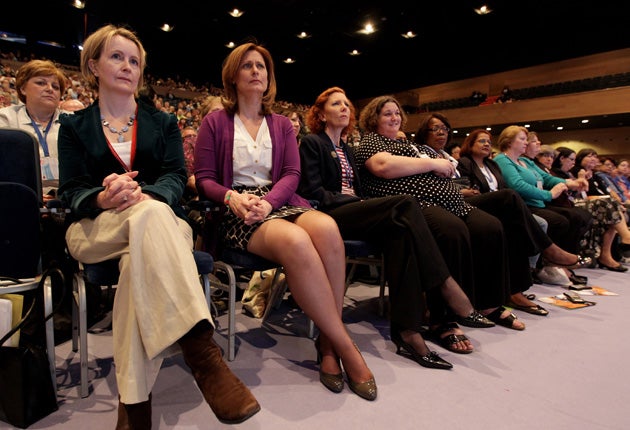With support back to 1980s levels, Labour turns in on itself

Your support helps us to tell the story
From reproductive rights to climate change to Big Tech, The Independent is on the ground when the story is developing. Whether it's investigating the financials of Elon Musk's pro-Trump PAC or producing our latest documentary, 'The A Word', which shines a light on the American women fighting for reproductive rights, we know how important it is to parse out the facts from the messaging.
At such a critical moment in US history, we need reporters on the ground. Your donation allows us to keep sending journalists to speak to both sides of the story.
The Independent is trusted by Americans across the entire political spectrum. And unlike many other quality news outlets, we choose not to lock Americans out of our reporting and analysis with paywalls. We believe quality journalism should be available to everyone, paid for by those who can afford it.
Your support makes all the difference.They won't say so – publicly, at least – but the more realistic Labour strategists have set their sights on coming second in next week's general election.
They had hoped by this stage of the campaign to have reeled in much of David Cameron's opinion poll lead by warning relentlessly that a Tory government would make brutal spending cuts. The Liberal Democrats' dramatic surge after the first televised leaders' debate 12 days ago changed all that, and Labour instead finds itself in a desperate struggle to avoid the wooden spoon.
The slide in Labour support to levels not plumbed since the early 1980s has strained party discipline to its limit and forced it to rethink its campaign strategy. Much of the flak has been directed at Lord Mandelson, the campaign chief, and Alastair Campbell, who has emerged from political retirement to advise Gordon Brown.
Resentment has grown at the exclusion of well-known cabinet faces from the campaign and the initial strategy of dispatching the Prime Minister to meet small groups of party loyalists in dour settings.
He is now being sent to events where he meets "real people" – yesterday he addressed the Royal College of Nursing annual conference in Bournemouth (receiving two standing ovations), met staff at a Weymouth supermarket and took questions from listeners of a Southampton radio station.
Labour wants to turn the spotlight on the public services and will place repeated emphasis on Mr Brown's experience in handling the nation's finances in the run-up to Thursday's televised debate on the economy.
The party has betrayed its frustration over its failure to break through by protesting formally to the broadcasters over the blanket coverage given to the debates. The Prime Minister also called yesterday for a fresh emphasis to be placed on policy issues: "I think it is about time the newcomer came on to the stage for this election, and that is the policies of the parties."
The Labour campaign faced extra strain after the Conservatives claimed to have identified 20 Labour-held seats they believed they could now win because of the Liberal Democrats. They include the West Yorkshire constituency of Morley and Outwood, which is being contested by Ed Balls, the Schools Secretary. Douglas Alexander, the party's campaign co-ordinator, dismissed the claims as "spin" and suggested several Labour-held marginal seats were "back in play". He also listed several constituencies he insisted the party could capture from the Tories or Liberal Democrats.
The Liberal Democrat bandwagon has sidetracked Labour into fending off questions over how it would act in a hung parliament. Divisions over the issue were laid bare after the Home Secretary, Alan Johnson, used a BBC interview to tell colleagues that they had nothing to fear from a coalition government. Mr Alexander and Mr Balls pointedly refused yesterday to endorse his opinion. Mr Balls said that the election result would be decided by the voters – not in interviews.
Other problems are piling up for the Labour high command. With nine days to polling, speculation is already intensifying over who could succeed Mr Brown – hardly a vote of confidence in his ability to pull off an electoral miracle.
Former minister Fiona Mactaggart, who is standing in Slough and has previously called for Mr Brown to be replaced, yesterday identified Mr Johnson as a potential successor after the election. Dari Taylor, the MP for Stockton South since 1997, protested that candidates in the North of England felt "excluded" by the party high command and urged Mr Brown to visit.
Meanwhile, Paul Kenny, the general secretary of the GMB union, said Labour's election campaign had been a "one-trick pony" by asking voters to trust Mr Brown on the economy.
He said of party strategists: "They have been too reactive to the Tory attacks and to Nick Clegg and his photogenic style, and really need to be more positive about some of the other things in their manifesto."
Join our commenting forum
Join thought-provoking conversations, follow other Independent readers and see their replies
Comments